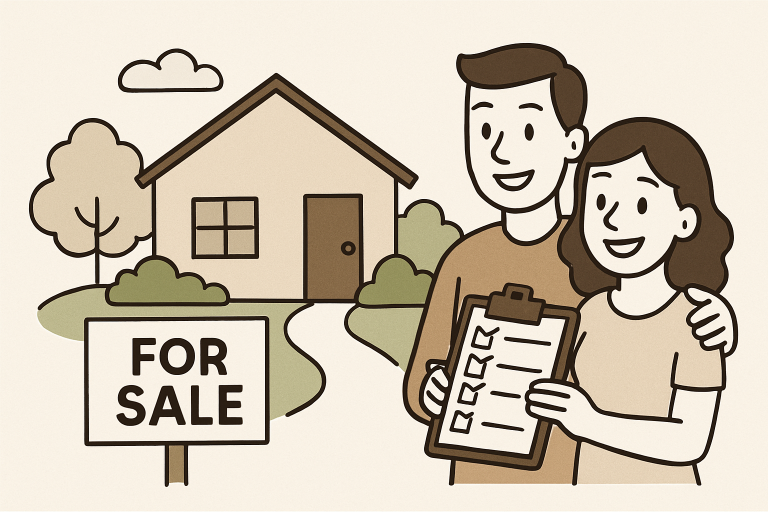Why Careful Planning Is the Key to Success
Buying a home is one of life’s most significant milestones—and without a smart strategy, the journey can quickly turn overwhelming. A well-defined plan saves precious time and shields you from costly setbacks. First, determine what truly matters to you. Are your priorities space for a home office, a specific school district, or move-in-ready convenience? Once these are clear, decisions become less stressful and your home search becomes more focused. For those focusing on specific metro areas, keeping an updated list of options, such as Charlotte homes for sale, can provide a starting point and help orient your search toward properties that meet your needs. Organizing your must-haves and deal-breakers before viewing listings helps you act confidently and efficiently, making your home search more productive and less stressful.
Budget Breakdown: Setting Realistic Expectations
Before falling in love with any property, set a firm budget. Calculate how much you can borrow, but more importantly, how much you’re comfortable paying each month. Consider not just the mortgage but also property taxes, homeowner’s insurance, and ongoing maintenance. According to NerdWallet, keeping a close eye on all these costs can help you avoid becoming “house poor” and maintain financial flexibility. A clear budget helps you find the perfect fit without risking stress, letting you confidently narrow your options and avoid disappointment later. Remember that hidden costs can sneak up—such as appraisal fees, closing costs, HOA dues, and potential repairs. Building in a financial buffer prepares you for surprises and strengthens your offer. Setting realistic boundaries from the outset saves time and reduces stress as you compare properties and neighborhoods.
Neighborhood Know-How: Choosing the Right Area
Location is key—choose where you live as thoughtfully as what you buy. Your lifestyle, daily routine, and long-term plans all play a role. Make a point to visit neighborhoods at different times of day to get a sense of community activity, safety, traffic, and local amenities. Talking to residents and utilizing crime maps or resources, such as U.S. News neighborhood guides, can provide valuable insights. Top priorities often include school ratings, walkability, commute times, and access to shopping or parks.
The Value of Professional Guidance
An experienced real estate agent is more than a tour guide—they’re an advisor, negotiator, and problem-solver. Agents often know about listings before they hit the market and will help you avoid common pitfalls. Many buyers also benefit from partnering with mortgage brokers who shop for the best rates, as well as with skilled home inspectors who identify potential issues before they become unexpected expenses. Seeking advice from a financial planner can offer further peace of mind as you weigh what’s possible within your budget and goals.
Digital Tools for Savvy Homebuyers
The right technology streamlines your experience from search to sale. Explore online real estate platforms that offer robust filters, 3D tours, and detailed neighborhood information. Some popular home search sites offer diary features and saved searches, making it easier to compare prospects. Mobile apps and virtual tours allow you to tour homes even on a busy schedule, while e-signature services keep paperwork hassle-free and organized. Research reviews before relying on any platform; detailed, up-to-date listings are crucial to making informed decisions.
Evaluating Properties: What to Look For
It’s easy to get swept up in aesthetic features, but look beneath the surface. Examine the basic structural elements, including the age of the roof, HVAC system, and major appliances, as well as signs of damage or poor maintenance. A simple checklist—focusing on electrical, plumbing, windows, and insulation—can keep you grounded during tours. Bring your smartwatch or smartphone to document details and photos, helping you recall each property’s unique pros and cons after a day of house-hunting. If you’re unsure about something, don’t hesitate to ask the seller or your agent for clarification.
Making Offers and Closing the Deal
When you’ve found “the one,” be decisive but thorough. Craft an offer based on comparable recent sales, current market conditions, and advice from your agent. Be ready for negotiations on price, repairs, or contingencies—flexibility is your friend. Stay organized by maintaining a folder of key documents, receipts, and correspondence. Schedule a final walk-through before closing, and don’t hesitate to ask about anything that seems out of order during the inspection. Clear communication with your agent, lender, and all parties involved paves the way for a smooth closing process.
Final Thoughts on a Winning Hunt
While house-hunting is a journey full of decisions and emotions, the right strategies make all the difference. Stay patient when inventories are tight, and celebrate small wins along the way. Whether you’re starting a family, relocating for work, or making a smart investment, each market is unique—so remain adaptable and seek advice when needed. With careful planning and a proactive mindset, you’ll be ready to find not just any home, but the right one for you.

